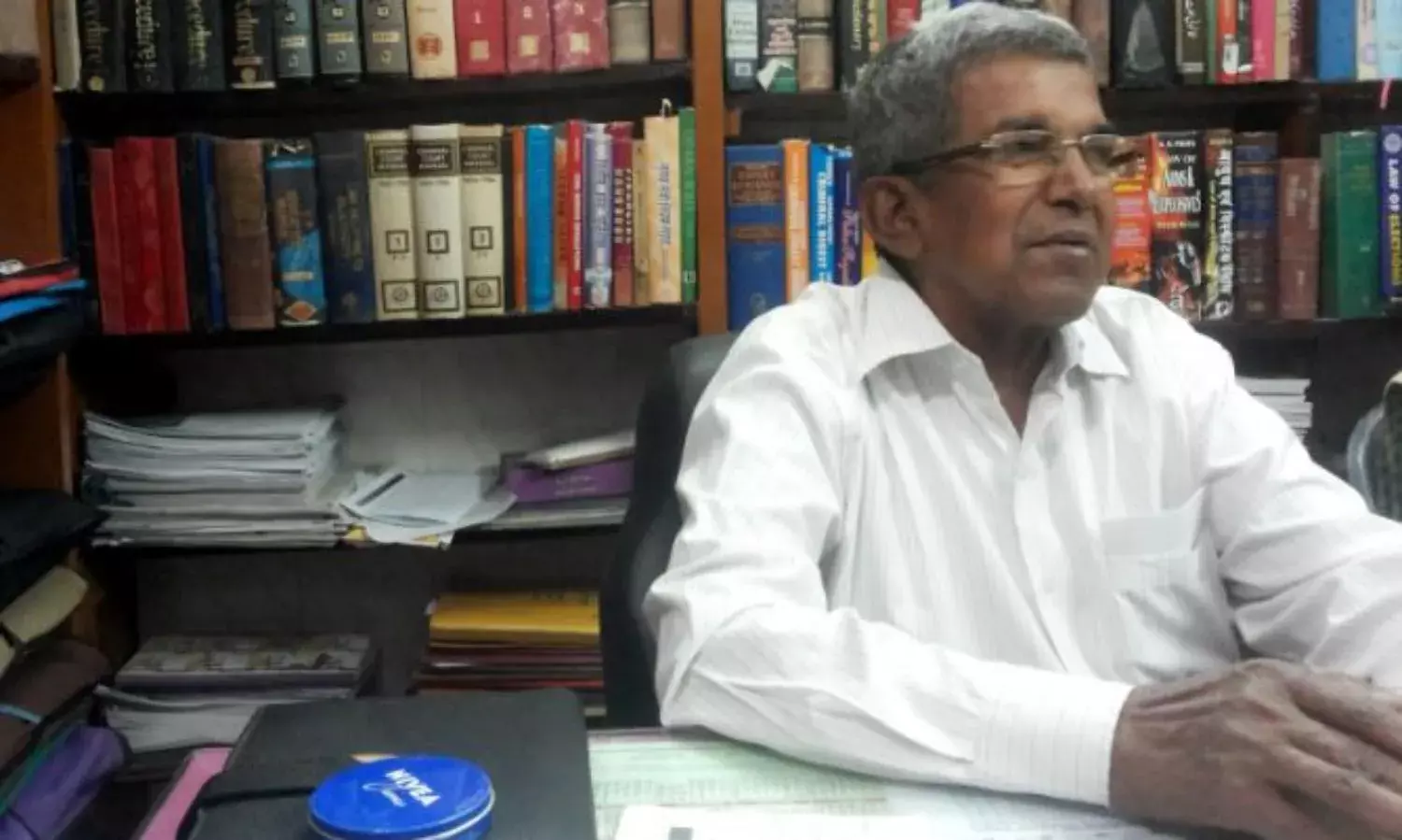'Harassed, Abused and Threatened', 76 year old Lawyer Alleges Political Conspiracy in UP Arrests
Press conference

NEW DELHI: After being detained for a month at the Lucknow district jail, rights activist, senior advocate and founder of the Rihai Manch Mohammad Shoaib was granted bail by a Lucknow court, and released on Sunday.
At a press conference in Delhi yesterday the 76-year-old lawyer gave an account of how UP police personnel abused and harassed him, and when he protested, threatened that his sons too would be arrested, and his family's life ruined.
Shoaib further stated that the police kept asking him the whereabouts of Rajeev Yadav, general secretary of the Rihai Manch. The organisation has helped acquit a number of people it says were falsely implicated by police in “terror” cases.
On December 18 police in Lucknow placed Shoaib under house arrest after the administration imposed Section 144 ostensibly to curb protests against the Citizenship Amendment Act and the proposed National Register of Citizens.
Close to midnight on December 19, he says he was called by the circle inspector in Nazirabad and taken to the Hazratganj police station for questioning, and later taken into custody.
He told the media that the FIR lodged at Hazratganj accuses unnamed persons of serious crimes such as rioting, criminal conspiracy and attempt to murder. It does not mention him by name.
This is corroborated by reports from the ground that most FIRs filed by UP police in connection with the protests do not name specific individuals.
Shoaib’s family was initially told he would be released after questioning. When he did not return, they filed a habeas corpus petition in the Allahabad High Court which revealed that the police had arrested him alleging his involvement in a violent protest against the CAA at Parivartan Chowk.
This despite the fact that he was under house arrest at the time.
Calling the allegations against him a “conspiracy by the UP police”, Shoaib said there continues to be a threat to Rajeev Yadav’s life, and that if the UP police got his custody they would kill him.
He believes that the UP police targeted and arrested him, retired IPS officer S.R.Darapuri and teacher-activist Robin Verma in order to locate Rajeev Yadav, because of the Rihai Manch’s work in providing legal aid to victims of hate crimes and those falsely implicated in terror cases in UP.
Verma, released last week, has alleged that the UP police insulted and physically tortured him, “threatened to degrade” his wife and infant daughter, and asked him “If you are a Hindu, why are you friends with Muslims?”
Why target the Rihai Manch?
Shoaib, the organisation’s president, gained prominence after six bombs were set off on court premises in Lucknow, Varanasi, Faizabad, and Gorakhpur on 23 November 2007, killing 15 people.
Following the blasts, lawyers across UP went on strike and the Lucknow Bar Association resolved not to represent anyone accused of “terror”. In August 2008 it expelled lawyers including Shoaib who had decided to represent the accused. For this decision, lawyers brutally assaulted Shoaib inside the premises of the Faizabad and Lucknow court.
Shoaib famously fought the case of Aftab Alam Ansari, whom the police accused in the serial bomb blast case, kept in custody and tortured. Ansari was later acquitted of all charges, with the UP police claiming it to be a case of mistaken identity.
Since then Shoaib has successfully fought the cases of many terror accused who were denied or could not access legal aid.
Rajeev Yadav, general secretary of the Rihai Manch, studied the 2005 riots in UP’s Mau district and noted their resemblance to the 2002 riots in Gujarat.
He says his research discovered the involvement of Yogi Adityanath’s Hindu Yuva Vahini in the riots, after which he began tracking the priest, MP and later chief minister, and documenting his speeches.
With other members of the Manch he directed the documentary film ‘Saffron War - Radicalization of Hinduism’ which is available on YouTube and purports to document hate speeches made by the UP CM.
The Rihai Manch advocacy group was formally established in 2012 to raise questions over custodial killings under Mayawati’s government and incidents of communal violence in UP.
Since the BJP government came to power in UP, the Manch has been raising critical questions about the indiscriminate police and mob killings of Dalit, Muslim and OBC youth, and demanding a probe into the 3,000 alleged “encounter killings” in the state.
Many of these alleged extrajudicial executions are currently under investigation by the National Human Rights Commission based on cases filed by the Rihai Manch and other groups.
On January 3, at a press conference called by the director-general of the UP police, officials accused the Rihai Manch of causing violence and instigating protests against the CAA and NRC.
Shoaib and Rajeev Yadav in their address to the media emphasised that the Rihai Manch and its members were under attack by the UP administration and police for exposing human rights violations in the state.



